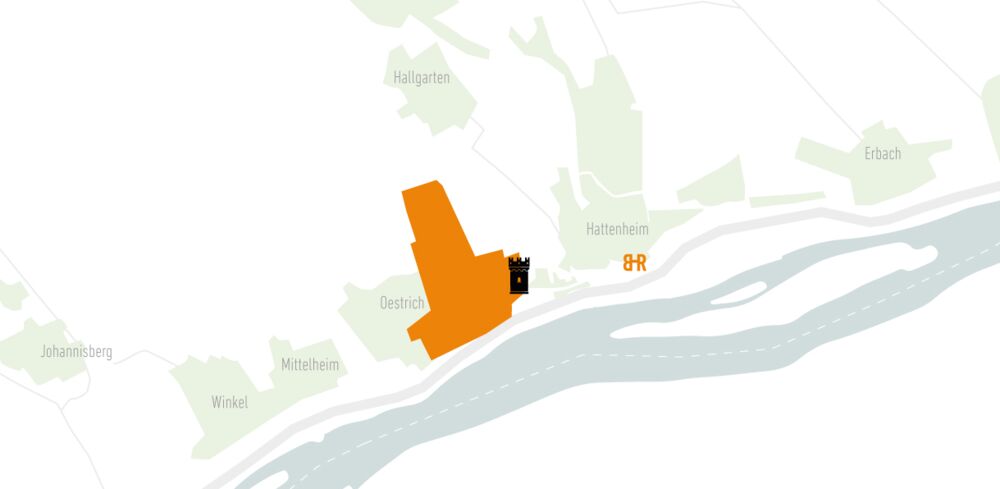If you go to the Doosberg in Oestrich, you walk in the footsteps of the Ress family. The Doosberg was and still is the original parcel of the Ress family. Today's VDP winery was built up piece by piece on this vineyard. Today it is one of the largest ecological wineries in the state of Hesse.
The name Doosberg is derived from the old German word "Dachs" (badger), which still likes to stay in this vineyard because of the optimal soil conditions. You just have to look carefully - then, with a little luck, you can see him building a little shelter in the middle of the vines.
Great ripening potential
The Doosberg is a south-southwest exposed single vineyard site and lies at an altitude of 110 to 130 meters above sea level with a slope of 5 to 10 percent. A steady wind blows across the inclined plane of the parcel, which borders the Oestrich district to the east, ensuring that the grapes dry out after rain and fog in the fall. The resulting prolonged ripening phase in autumn, the many hours of sunshine, and the humus-rich loess soils, with their good water storage capacity, ensure the formation of full-bodied and heavy wines. The soil is dominated by a high percentage of carbonated loess loam, partly interspersed with terraced sediments. Due to the gravel bands and the slope inclination, the soils can store water well and supply the vines all year round. Wines from the Doosberg present themselves mostly heavy and full-bodied with elegance. Their high storability allows them to be enjoyed even after several years of



